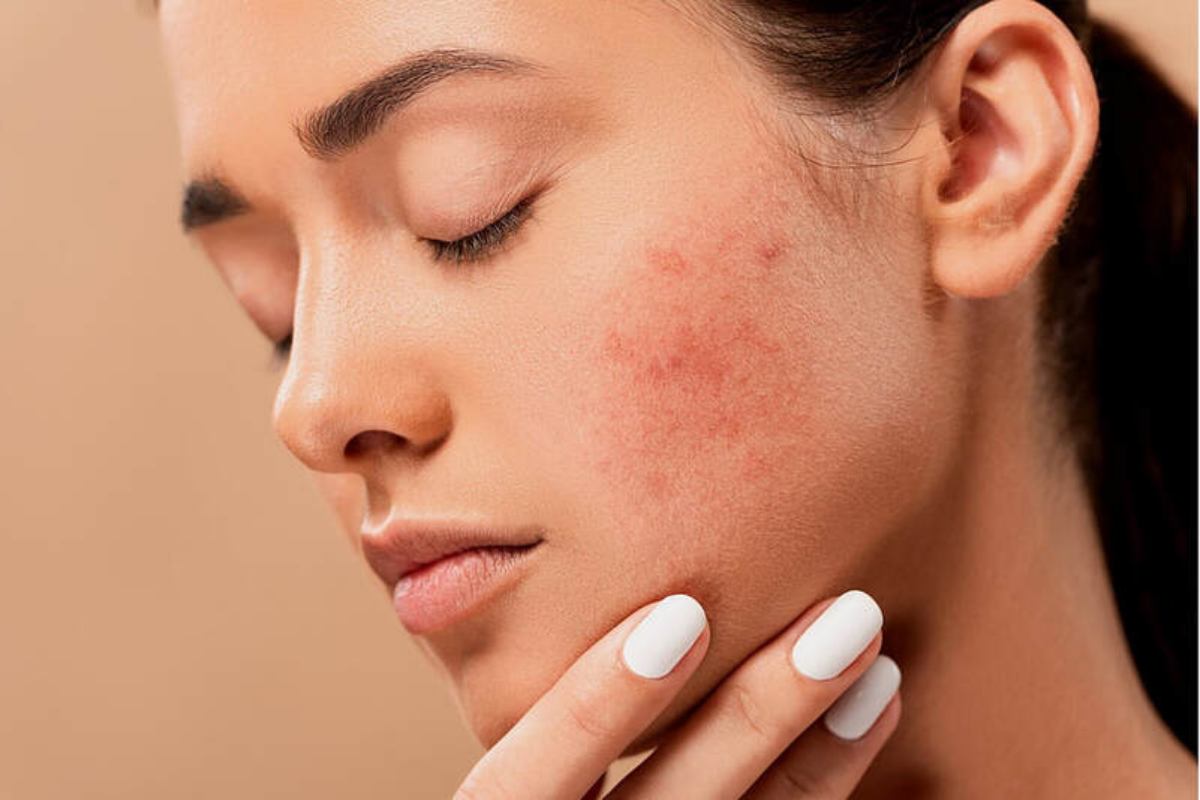We all dread acne breakouts, especially since they seem to occur at the worst moments. When considering the causes of acne, most people don’t consider their diet. There have been links between the development of acne and what’s in a person’s diet.
Table of Contents
What is Acne?
There are different types of acne, but ultimately it is a skin condition that is caused by blocked hair follicles. There are factors that can contribute to blocked pores, like excess oil production from the sebaceous gland and dead skin cells.
Acne can appear as:
- Whiteheads
- Blackheads
- Papules
- Pustules
- Cysts
- Nodules
How Does Diet Affect Acne?
There is a wealth of research available on diet and its potential effects on acne, but there’s not enough information available to confirm most theories. Ultimately, the one theory that seems to be holding true is that high glycemic foods can contribute to acne formation.
High Glycemic Foods
High glycemic food is a type of food that seems to worsen acne. High glycemic foods are full of carbohydrates and refined sugars, and consuming them causes blood sugar to rise rapidly. Research and studies suggest that during these blood sugar spikes, the inflammation levels of the body also increase, which results in your sebaceous glands producing more sebum. Sebum and acne are closely associated, so excess sebum means a higher risk of developing acne. High glycemic foods include bagels, potatoes, corn, most cereal options, sugary drinks, and white bread. Greasy foods have often been linked to acne, but it’s not the grease that causes acne; it’s their high glycemic content.
There have been a few studies that have indicated that a low glycemic diet can help reduce acne. This means consuming food options like vegetables, fruits, nuts, pasta, and grains.
There have been some studies that have weekly linked dairy to acne. It is thought that the hormones present in milk carry over into dairy products and affect acne the body’s own hormonal levels, but there isn’t enough research or evidence in favor of this theory to confirm it.
Caloric intake has also been considered to have an effect on acne. Some of the research conducted has suggested that lowering calories can help with acne symptoms; the theory is that the increased calorie intake increases androgen levels in the body, which leads to increased skin cell growth and sebum output. While this is still a work in progress, it’s more likely that those watching their calorie intake are having fewer acne breakouts because they are cutting out high glycemic foods from their diets.
What Foods Might Help?
Just as some types of food may contribute to affect acne, others can help prevent hormonal acne and treat acne symptoms.
Antioxidants
Antioxidants have the potential to help reduce inflammation in the body, which can also reduce acne inflammation. It is an inflammatory skin condition, and by consuming foods rich in antioxidants like vitamin E, vitamin a, and selenium, future breakouts may be avoidable.
Probiotics
Probiotics can help reduce inflammation by encouraging the growth and development of healthy bacteria in the gut. Probiotics are naturally found in pickles, sauerkraut, and kombucha.
Omega-3 Fatty Acids
Omega-3 fatty acids are good fats, and they, too, help fight inflammation in the body. Foods like walnuts and salmon have high ratios of omega-3s.
Zinc
Lower levels of zinc have been connected to the development of acne, particularly more severe acne. Zinc is commonly found in cashews and almonds.
Acne can be tough to deal with, but now you know what parts of your diet might be contributing to it. Cutting back on these food items may not be a permanent solution, but it’s a start.

